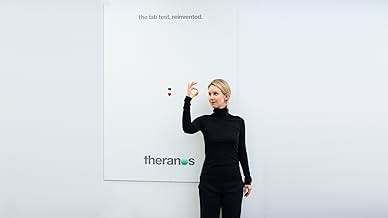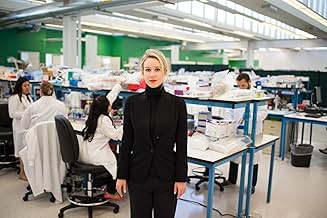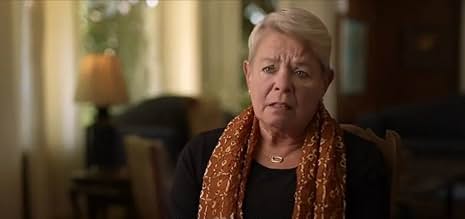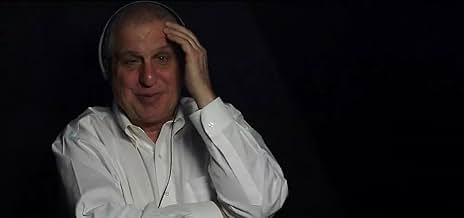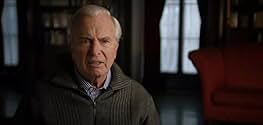A Inventora: À Procura de Sangue no Vale do Silício
Título original: The Inventor: Out for Blood in Silicon Valley
AVALIAÇÃO DA IMDb
7,2/10
16 mil
SUA AVALIAÇÃO
A história de Theranos, uma empresa de milhões de dolares, sua fundadora, Elizabeth Holmes e um grande fraude.A história de Theranos, uma empresa de milhões de dolares, sua fundadora, Elizabeth Holmes e um grande fraude.A história de Theranos, uma empresa de milhões de dolares, sua fundadora, Elizabeth Holmes e um grande fraude.
- Direção
- Roteirista
- Artistas
- Indicado para 1 Primetime Emmy
- 2 vitórias e 3 indicações no total
Alex Gibney
- Self - Interviewer
- (narração)
Elizabeth Holmes
- Self - CEO and Founder of Theranos
- (cenas de arquivo)
Dave Philippides
- Self
- (as Dave Philippide)
Ramesh Balwani
- Self - President and Chief Operating Officer
- (as Sunny Balwani)
Avaliações em destaque
For those who have been unable to read the book Bad Blood about Theranos, this HBO documentary can help get you up to date on how the unimaginable happened. It's also easier to understand and remember the the events and people visually.
Visually this is a pretty clear and thorough depiction of the events. Clever blending of her walking around the office. It's nice to see the whistleblowers Tyler and Erika. And on the flip side Sunny Balwani the guy who helped sell the con.
Some faults. There are a few slower moments that could have been edited out. Some of the people who gave interviews were not that interesting. A lot of laughing by the interviewees. Too many shots of her scary stare, but she did blink once!
Looking forward to the movie with Jennifer Lawrence. It's good to watch this documentary before the movie comes out because movies can be confusing and it can be tough to figure out who is who.
Visually this is a pretty clear and thorough depiction of the events. Clever blending of her walking around the office. It's nice to see the whistleblowers Tyler and Erika. And on the flip side Sunny Balwani the guy who helped sell the con.
Some faults. There are a few slower moments that could have been edited out. Some of the people who gave interviews were not that interesting. A lot of laughing by the interviewees. Too many shots of her scary stare, but she did blink once!
Looking forward to the movie with Jennifer Lawrence. It's good to watch this documentary before the movie comes out because movies can be confusing and it can be tough to figure out who is who.
Grateful to see this story told, but the documentary is unnecessarily long, repetitive, and overstylized to make up for it.
A very solid documentary, and one that hits close to home for me, so I really appreciated the depth Alex Gibney provided. I have to say first that Erika Cheung is a true hero and such an admirable person. She wanted to dream the dream but remained honest to the engineering and what the data was telling her. Tyler Schultz too. They are just kids really, and the pressure they faced was enormous, and interestingly enough Schultz's elderly grandfather George (former statesman) was a part of the problem. The documentary also shows us (yet again) the importance of a free press, and the interviews with the Wall Street Journal reporter (John Carreyrou) were one of my favorite parts, along with the commentary from behavioral scientist Dan Ariely. The footage that Gibney gets from company meetings is fantastic. I also loved the parallel he shows us to Thomas Edison, giving an example of a case in which the famous inventor followed the start-up mantra "fake it 'til you make it," as well as to other Silicon Valley entrepreneurs, which puts this story in context as well as helps explain it.
Elizabeth Holmes was brilliant at selling investors and motivating her employees with the promise of a breakthrough in blood testing, but she was woefully incompetent at building an engineering team or listening to R&D inputs. What she failed to understand is that while you can be boldly aspirational and even attempt to emulate the approach of your idol (in her case, Steve Jobs) down to his look, at the end of the day it has to be grounded in some semblance of reality. For Jobs, setting aside his massive personal flaws, he always had the ability to balance both of these things, and he always had a strong counterpart, starting with Steve Wozniak early on. Where was Elizabeth Holmes's Woz? It's telling that other than a brilliant scientist/PhD from Cambridge who was marginalized when he started injecting unpleasant truth into the discussion (ultimately leading him to commit suicide), there is no mention or interview with a VP of R&D, or VP of Engineering here. Instead we see the President, and ex-Apple guy who was also her boyfriend, operating in the same smoke and mirrors sales act as her, as well as one of the company's creative marketing / brand types. There was never any "there" there, as they say, with the result being a constant game of "pay no attention to the man behind the curtain" that snowballed.
How Holmes was able to deceive a number of powerful, older men, and then leverage that to achieve great visibility, further investment, and the Walgreens deal is pretty shocking, even by Silicon Valley standards. I've lived in the Valley for some time, and have experience with start-ups, investors, and entrepreneurs. There is often a grand vision and the joke is like that old cartoon with the calculation at the blackboard, with the step drawn at an impossible leap labeled "then a miracle occurs." There is also always going to be investor money lost in a number of startups and that's just a part of the risk - but what makes this story reprehensible is that people's health was on the line. Perhaps one thing lacking in the documentary is an interview with people who were negatively impacted, such as one woman whose bogus test results indicated she had cancer.
The young employees at Theranos understood the human factor, with Tyler Schultz pointing out (perhaps a little too glibly) that with their 65% success rate at detecting syphilis, someone could think they were STD-free and spread the disease. Holmes never seems to get this, and to the bitter end she continues lying. I thought the documentary showed remarkable restraint in not drawing a conclusion, and even showed someone say that he thought she simply dreamed it so deeply that she didn't realize she was being deceptive. I don't buy that for a second. Aside from being an awful executive, she's an awful person, and to me comes across as a master manipulator and borderline sociopath, one cloaked in the altruistic goal of revolutionizing health care. In the end she's not stretching the truth with the aim of making this thing happen, she's lying to save her own skin. It's a chilling, chilling portrait.
Elizabeth Holmes was brilliant at selling investors and motivating her employees with the promise of a breakthrough in blood testing, but she was woefully incompetent at building an engineering team or listening to R&D inputs. What she failed to understand is that while you can be boldly aspirational and even attempt to emulate the approach of your idol (in her case, Steve Jobs) down to his look, at the end of the day it has to be grounded in some semblance of reality. For Jobs, setting aside his massive personal flaws, he always had the ability to balance both of these things, and he always had a strong counterpart, starting with Steve Wozniak early on. Where was Elizabeth Holmes's Woz? It's telling that other than a brilliant scientist/PhD from Cambridge who was marginalized when he started injecting unpleasant truth into the discussion (ultimately leading him to commit suicide), there is no mention or interview with a VP of R&D, or VP of Engineering here. Instead we see the President, and ex-Apple guy who was also her boyfriend, operating in the same smoke and mirrors sales act as her, as well as one of the company's creative marketing / brand types. There was never any "there" there, as they say, with the result being a constant game of "pay no attention to the man behind the curtain" that snowballed.
How Holmes was able to deceive a number of powerful, older men, and then leverage that to achieve great visibility, further investment, and the Walgreens deal is pretty shocking, even by Silicon Valley standards. I've lived in the Valley for some time, and have experience with start-ups, investors, and entrepreneurs. There is often a grand vision and the joke is like that old cartoon with the calculation at the blackboard, with the step drawn at an impossible leap labeled "then a miracle occurs." There is also always going to be investor money lost in a number of startups and that's just a part of the risk - but what makes this story reprehensible is that people's health was on the line. Perhaps one thing lacking in the documentary is an interview with people who were negatively impacted, such as one woman whose bogus test results indicated she had cancer.
The young employees at Theranos understood the human factor, with Tyler Schultz pointing out (perhaps a little too glibly) that with their 65% success rate at detecting syphilis, someone could think they were STD-free and spread the disease. Holmes never seems to get this, and to the bitter end she continues lying. I thought the documentary showed remarkable restraint in not drawing a conclusion, and even showed someone say that he thought she simply dreamed it so deeply that she didn't realize she was being deceptive. I don't buy that for a second. Aside from being an awful executive, she's an awful person, and to me comes across as a master manipulator and borderline sociopath, one cloaked in the altruistic goal of revolutionizing health care. In the end she's not stretching the truth with the aim of making this thing happen, she's lying to save her own skin. It's a chilling, chilling portrait.
I had read John Carreyrou's fine Wall Street Journal articles, as well as his thrilling book, Bad Blood, before seeing this documentary tonight. The first half of the documentary seems almost worshipful of Elizabeth Holmes, building up her mystique and putting her unique ability to attract doting followers to her message on display. Quite a lot of time is spent gazing into those big blue, unblinking eyes. By the time we get around to the cracks in the facade, we are more than an hour into the film. It is inevitable that a lot of important background was left out: the climate of constant firings that went on for years, the fact that Sunny and Elizabeth met when he was 38 (and married) and she was 19, that Elizabeth's dad had been a VP at Enron, etc. Mostly I would have appreciated a little more specific information on why the Edison machine failed. The examples given in the film don't seem that unsolvable, but I know from the book that there were some basic issues that simply couldn't be dreamed away owing to the tiny sample sizes from the finger pricks.
Tyler Shultz comes off as a happy-go-lucky guy, but in fact he is one of the heroes of this story. It is not mentioned in this film, but not just his grandfather former Secretary of State and Theranos board member George Schultz, but also his parents flipped out when he told them he was quitting the company. His bravery in standing up for his values is truly admirable in one so young, especially considering the immense pressure he came under. To his parents' credit, they came around and ended up mortgaging their home to pay his legal bills.
Ultimately, though, the story gets Elizabeth right: she is a zealot who is deaf to any naysayers, even to this day. The cautionary tale for the rest of us, is are we George Shultz or Tyler Shultz? Are we willing to see the truth and make a difficult decision, or are we too invested to be willing to give up on something we had believed in?
Currently airing on HBO, this film by master documentarian Alex Gibney (The Armstrong Lie/Taxi to the Dark Side) explores the pervasive 'fake it till you make it' ethos which much of the dotcom enterprises have undertaken in order to gain funding for their big idea even though sometimes, as in this doc's case, there is no product delivered at the end of the day. Elizabeth Holmes wanted to create a revolutionary device which by using a person's blood (from a finger prick) could examine & determine any maladies or characteristics for medical use at a fraction of what the big labs charge today. Not having any successfully manufactured tangible device to use, the results of the initial tests performed on patients were skewed & problematic even though Walgreen's had bought into their new tech setting up wellness centers in Arizona before rolling them out nationwide. Aligning herself w/big money & hopeful investors, Holmes, along w/her partner & significant other, continued to ratchet up the success of their non-existent product to the public much to the chagrin of employees who knew the truth all along & eventually whistleblowed the entire scheme to the press. A worthy case of believing in the product rather than the producer is made when we see avarice & arrogance go hand in hand to a potentially devastating result.
Você sabia?
- CuriosidadesThe film's producer met with Elizabeth Holmes early in development, before criminal charges were filed, to determine whether she could be interviewed for the film. Ultimately the director decided he wanted to portray how Holmes carefully crafted Theranos and her own image to be seen by the public, up until the story unraveled. Accordingly, aside from brief footage from her deposition, all footage of Holmes seen in the film is from archival material from before she was charged, most of it her own commissioned promotional video for Theranos. Alex Gibney remarked "She made the documentary she wanted me to invest in and I used it to a different purpose."
- ConexõesReferenced in Film Junk Podcast: Episode 702: Dragged Across Concrete (2019)
- Trilhas sonorasU Can't Touch This
Written by M.C. Hammer (as Stanley Kirk Burrell), Rick James & Alonzo Miller
Performed by M.C. Hammer
Courtesy of Capitol Records
Under license from Universal Music Enterprises
Principais escolhas
Faça login para avaliar e ver a lista de recomendações personalizadas
- How long is The Inventor: Out for Blood in Silicon Valley?Fornecido pela Alexa
Detalhes
- Data de lançamento
- País de origem
- Idioma
- Também conhecido como
- Untitled Alex Gibney/HBO Project
- Empresas de produção
- Consulte mais créditos da empresa na IMDbPro
- Tempo de duração
- 1 h 59 min(119 min)
- Cor
- Mixagem de som
- Proporção
- 16:9 HD
Contribua para esta página
Sugerir uma alteração ou adicionar conteúdo ausente



